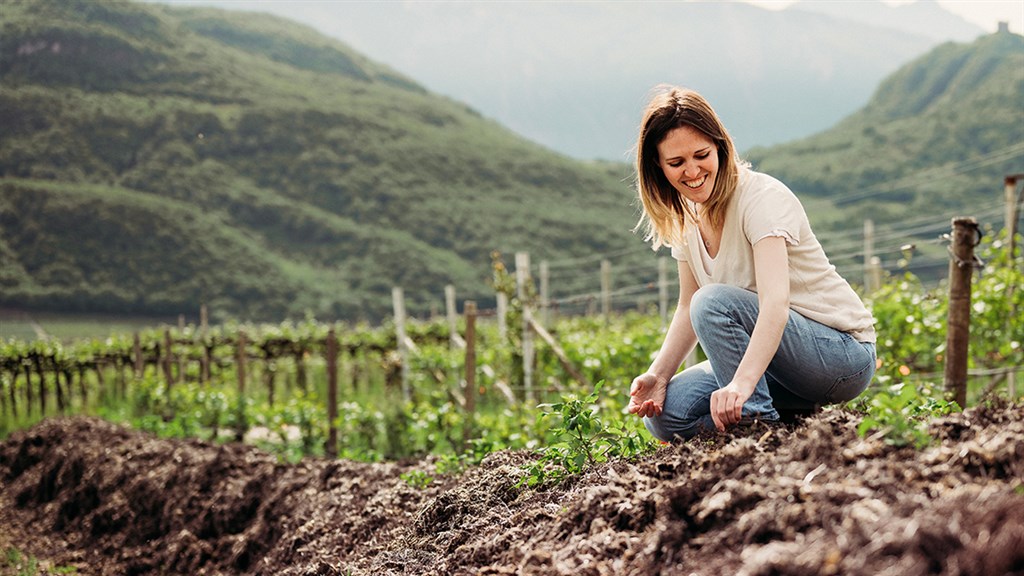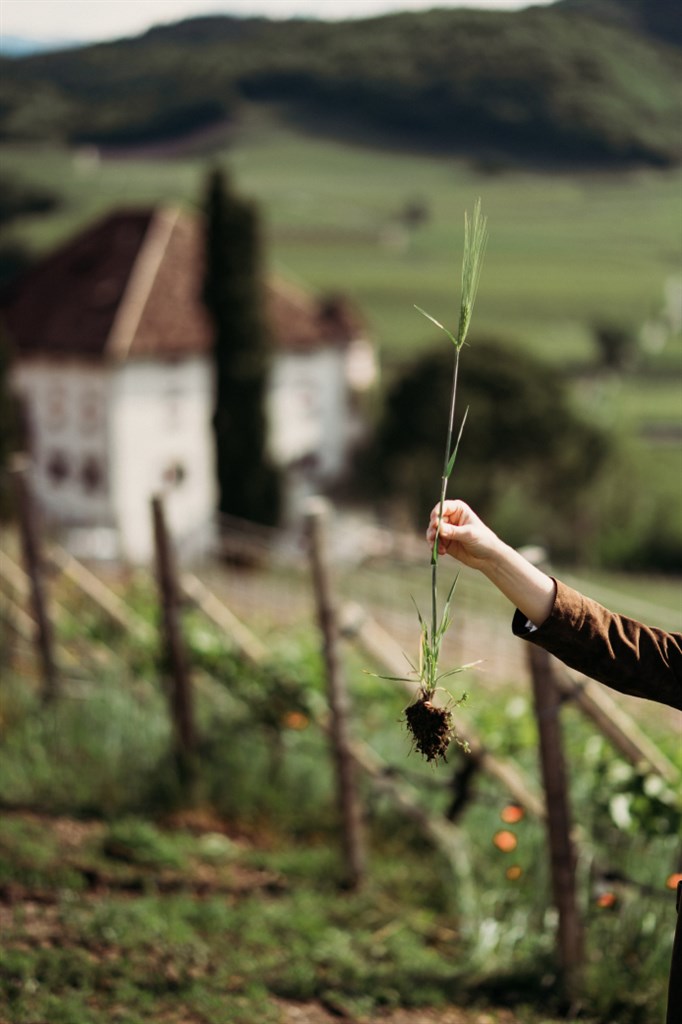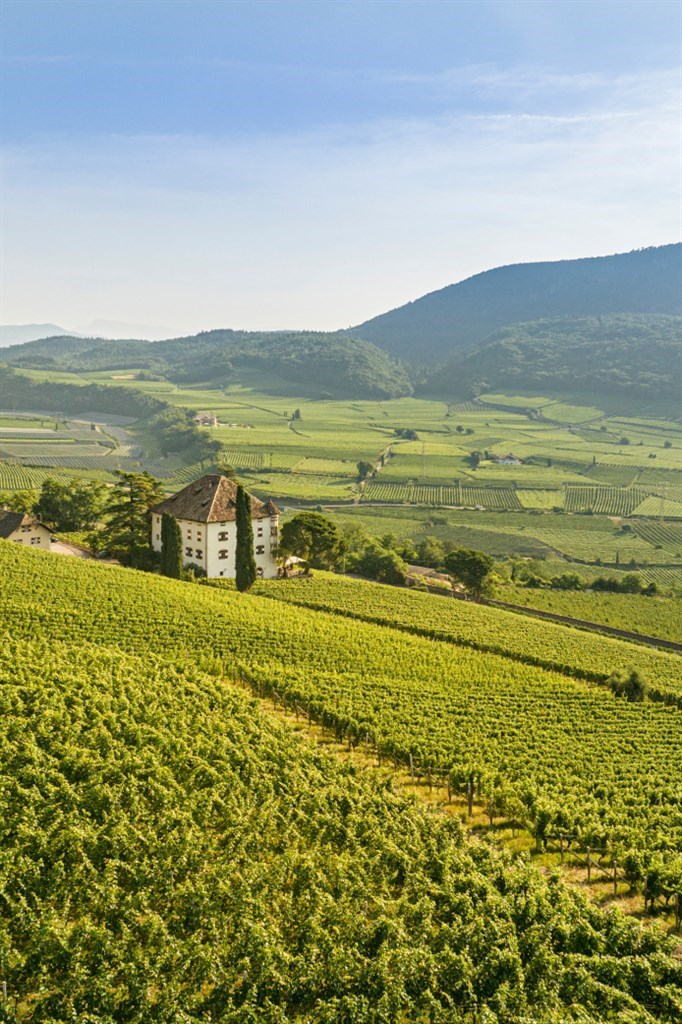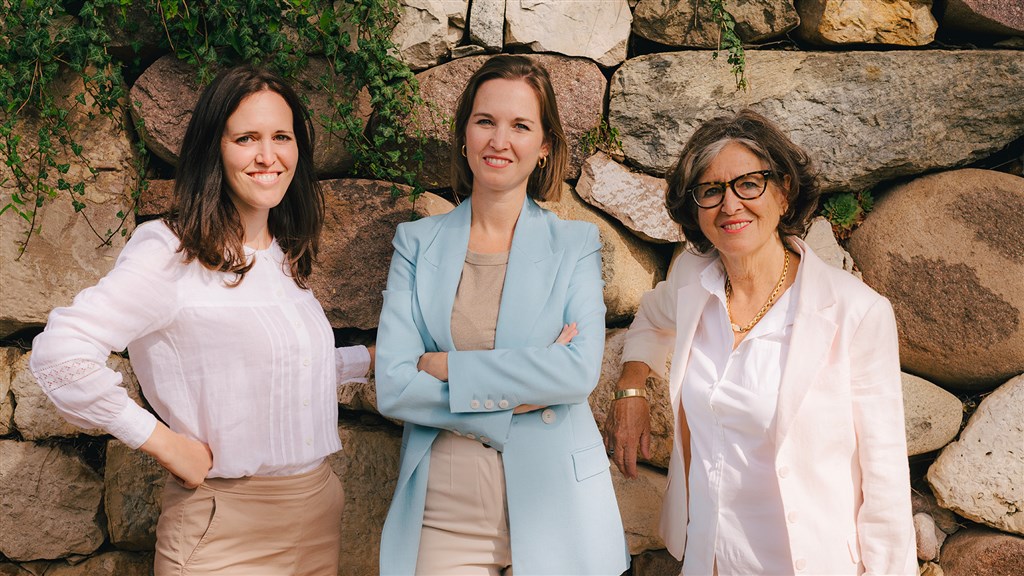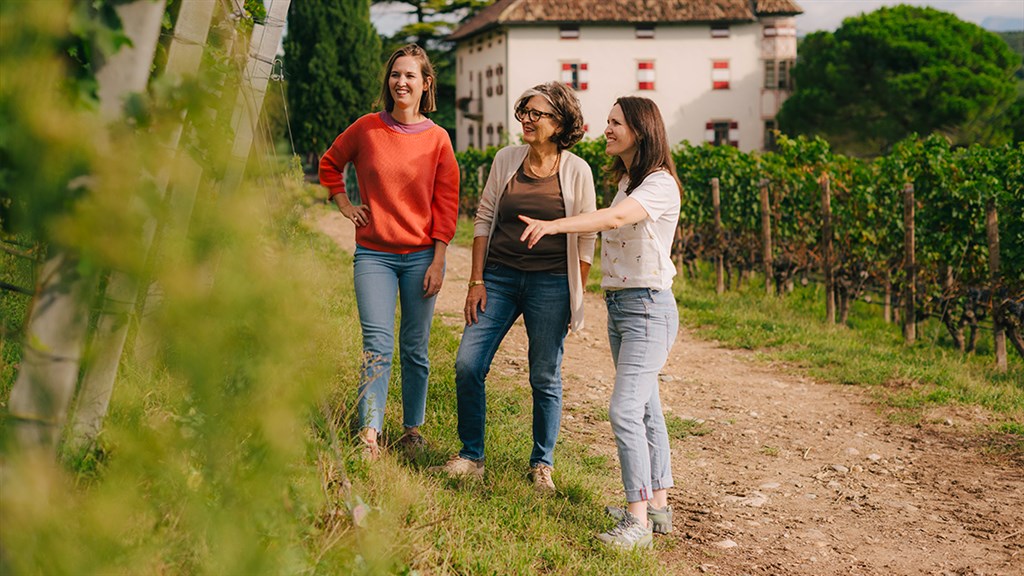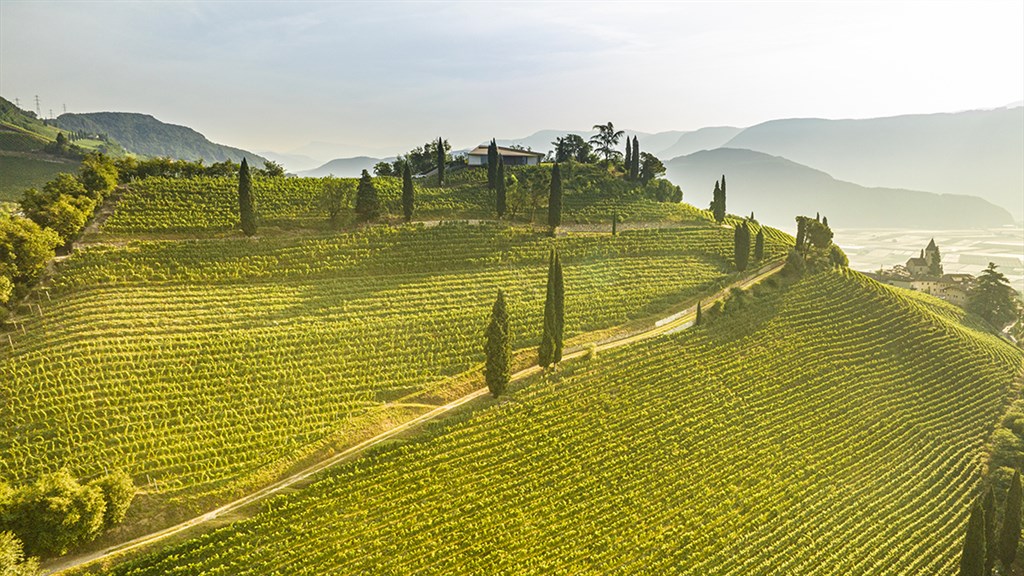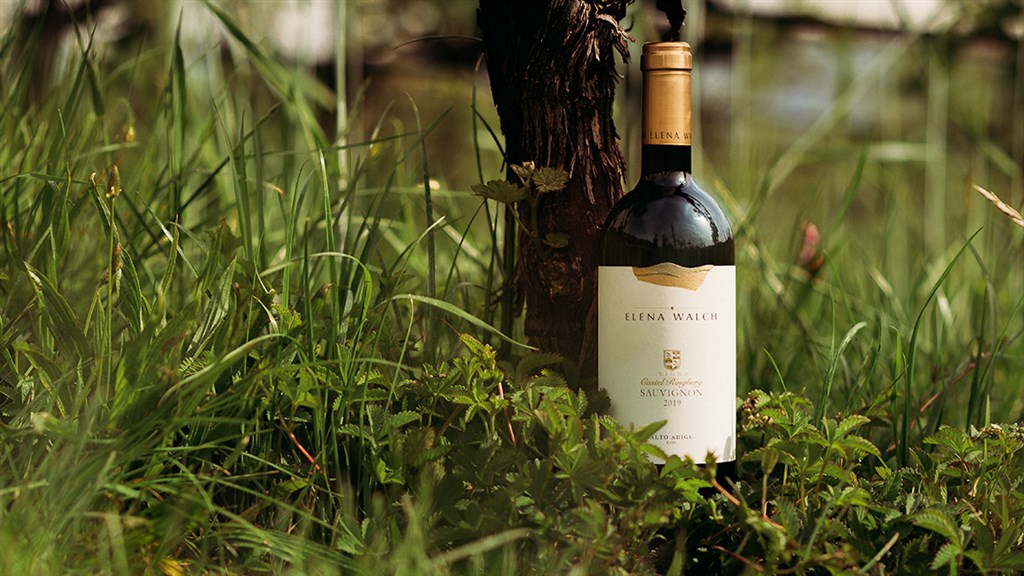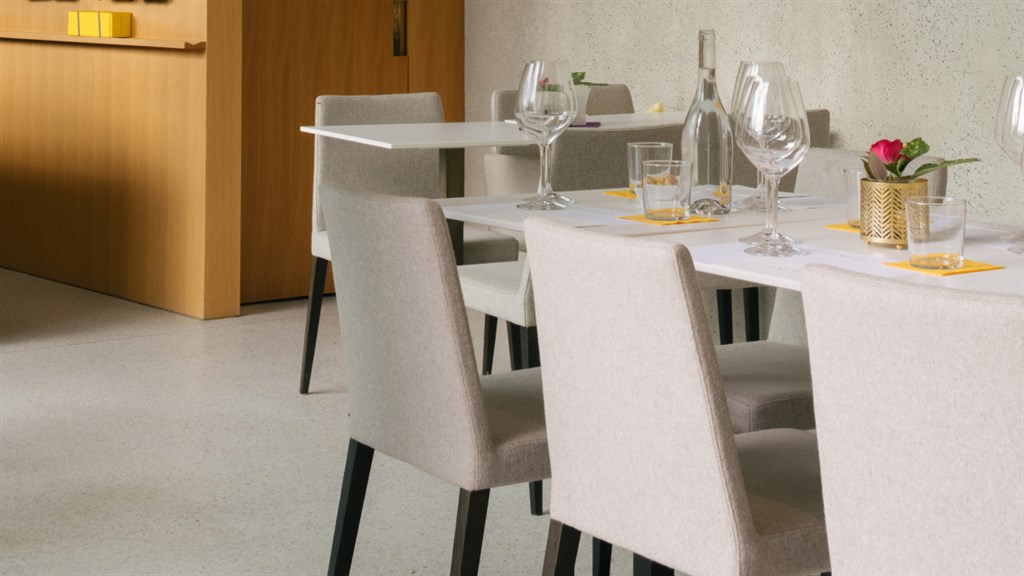IN THE VINEYARD
- Sowing legumes in vineyards maintains and promotes soil fertility, while increasing root space and allowing faster and deeper root growth. In addition, the roots provide the soil with nutrients, thus enriching insect biodiversity and intensifying the production of organic matter.
- A private compost in Castel Ringberg for the improvement of the humus content of the soil and the stimulation of the microbiological activity of the soil.
- Grassing to provide the vines with additional nutrition. The necessary minerals and the resulting nitrogen content ensure healthy growth of the vines.
- Rolling or alternate mowing of the rows to maintain the nitrogen content in the soil, which is essential for the fine minerality that characterizes the wines. The resulting “green carpet” has a positive effect on the water balance of the vineyard and provides an additional habitat for insects and small animals.
- The vineyards are regularly mulched in alternating rows to ensure long-term soil fertility.
- Use of exclusively water-saving drip irrigation systems. In combination with our weather stations with soil probes, irrigation can be used in a highly targeted manner only when the vines need it.
- Weather and infection monitoring systems monitor the health of the vineyard and adjust interventions, which become preventive rather than curative.
- Continuous analysis of the water requirements of the vines through several weather stations in the vineyards.
- Defoliation of the vines to increase aeration and thus reduce the risk of fungal diseases.
- Cultivation of two disease-resistant PIWI varieties: Bronner and Souvignier Gris.
- Preservation of dry-stone walls and hedges as habitats for animals and to promote biodiversity.
- Hosting beehives in the vineyards for pollination of the surrounding trees.
- Gentle tree pruning according to the principles of "Simonit & Sirch": Due to the natural lignification of the tree, no large wounds are created during pruning and the lymphatic system is protected.
- All grapes are carefully harvested by hand.


